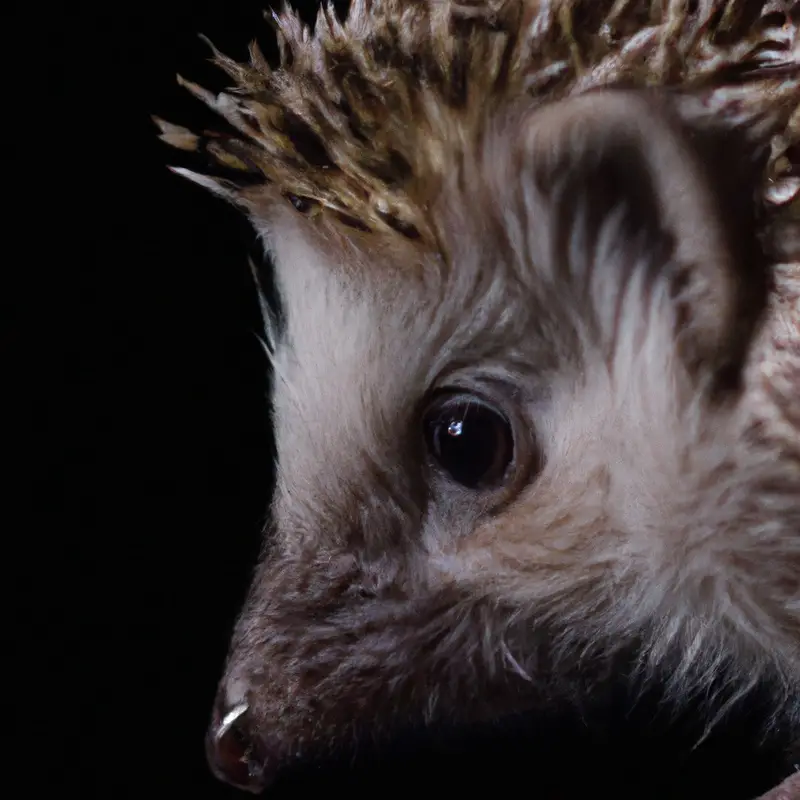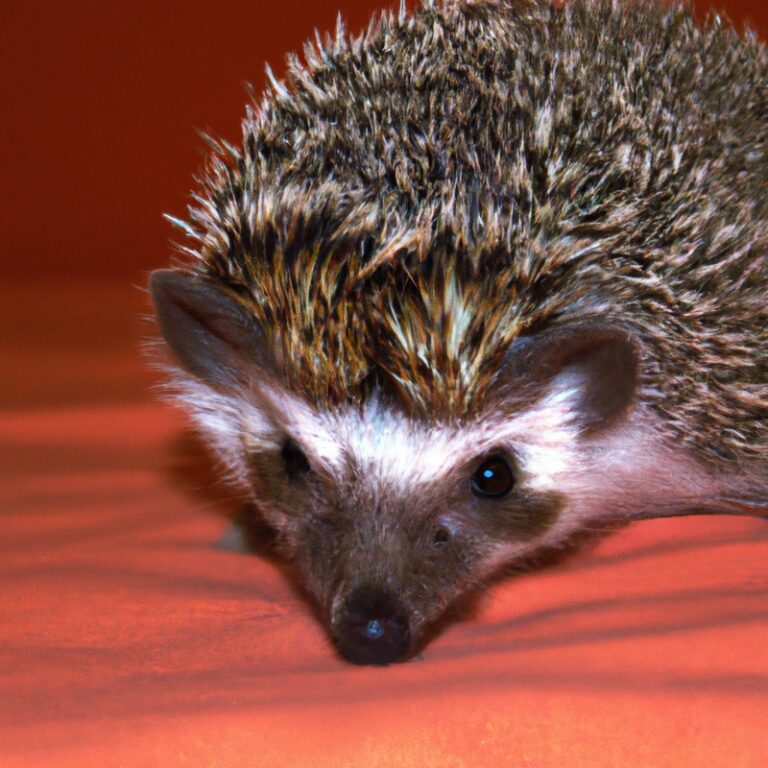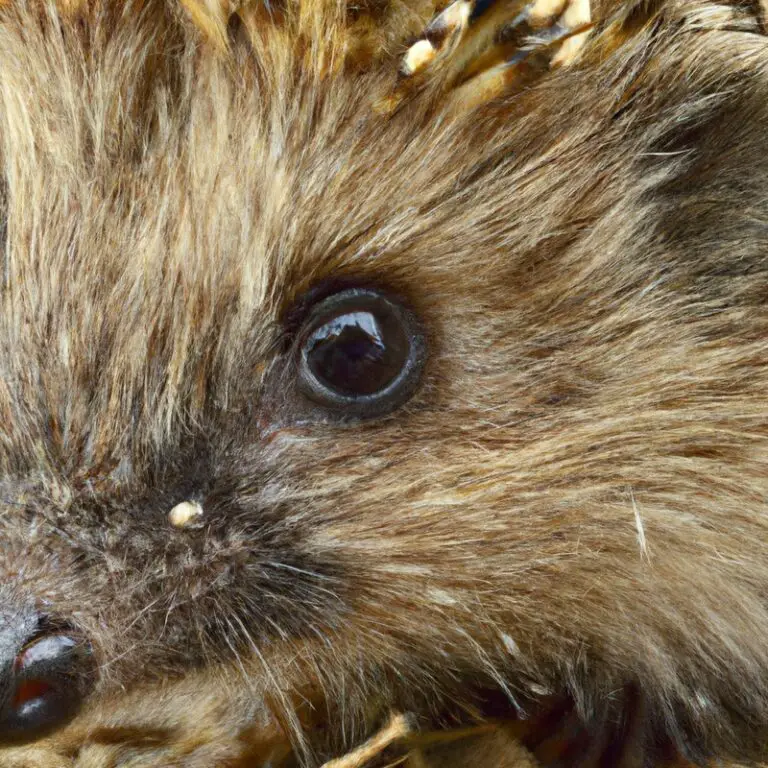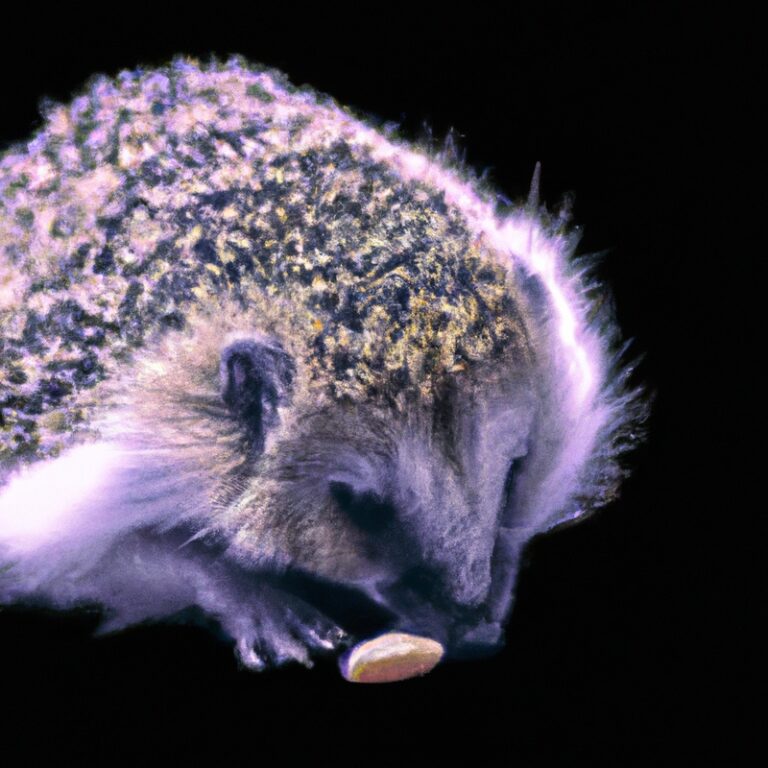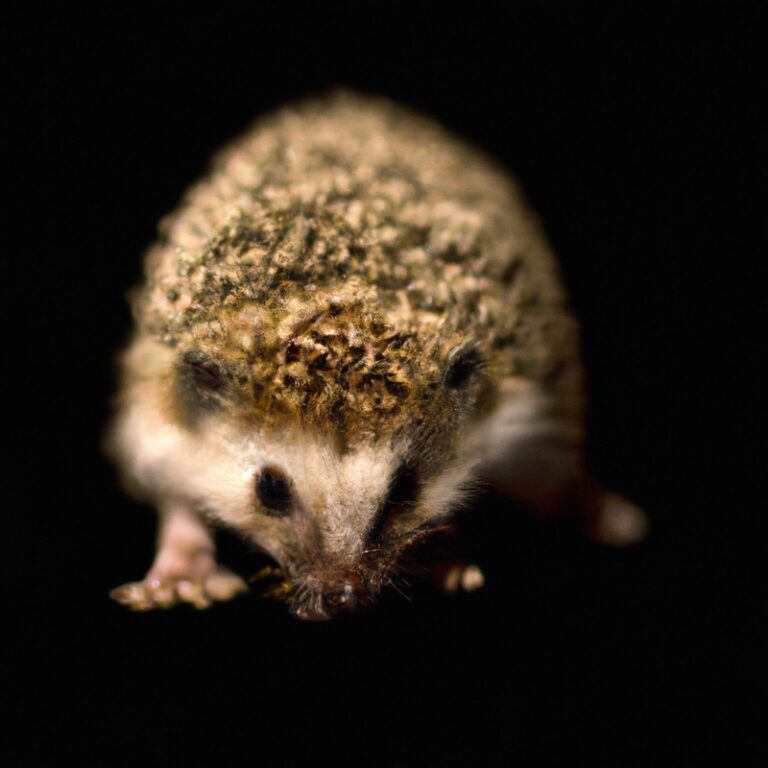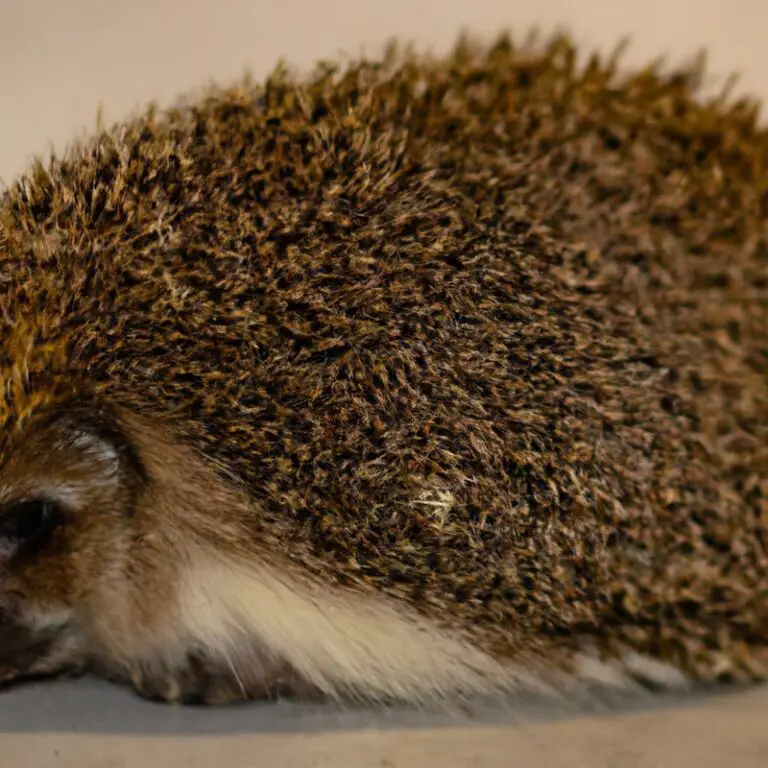What Is The Hedgehog’s Role In Controlling Aphid Populations?
Key Takeaways:
- Hedgehogs play a crucial role in controlling aphid populations in ecosystems.
- The consumption of aphids is a key part of hedgehogs’ diet.
- Hedgehog populations can have a direct impact on aphid population numbers.
- The presence of hedgehogs can reduce the need for chemical interventions to control aphid populations.
Are you tired of battling aphid infestations in your garden?
Well, have you ever considered enlisting the help of some spiky little warriors?
That’s right, hedgehogs! These adorable creatures have an important role to play in controlling aphid populations, thanks to their diet and natural predatory instincts.
In this blog article, we’ll explore the fascinating relationship between hedgehogs and aphids, their effectiveness in aphid control, and how you can attract these helpful critters to your own garden.
So, grab a cup of tea and prepare to be amazed by nature’s pest control experts!
| Hedgehog’s Role in Controlling Aphid Populations |
|---|
| PROS |
| – Hedgehogs are natural predators of aphids and can help naturally control their populations – Hedgehogs have a diverse diet and also eat other garden pests, providing additional pest control – Hedgehogs prefer areas with abundant vegetation, which often attract aphids, making them effective in aphid-infested gardens |
| CONS |
| – Hedgehogs need suitable habitat for shelter and nesting, which may not be present in all gardens – Hedgehogs may not completely eliminate aphid populations, as their diet includes a variety of other food sources – Hedgehog populations may vary depending on geographical location and climate, which can affect their effectiveness in controlling aphids |
| CONCLUSION |
| While hedgehogs can play a role in controlling aphid populations, they should be seen as part of an integrated pest management approach that includes other methods such as crop rotation, natural predators, and organic pest control methods. |
The diet of hedgehogs
Hedgehogs are insectivores, meaning their diet primarily consists of insects.
Hedgehogs as insectivores
Hedgehogs are insectivores, which means their diet primarily consists of insects. They have a remarkable ability to control insect populations in their habitat.
Hedgehogs eat a variety of insects such as beetles, caterpillars, slugs, and worms.
Their natural diet helps maintain the ecological balance by preventing the overgrowth of insect populations. By preying on insects, hedgehogs contribute to pest control in gardens and other natural environments.
Their insectivorous nature makes them valuable allies in maintaining the health and equilibrium of ecosystems.
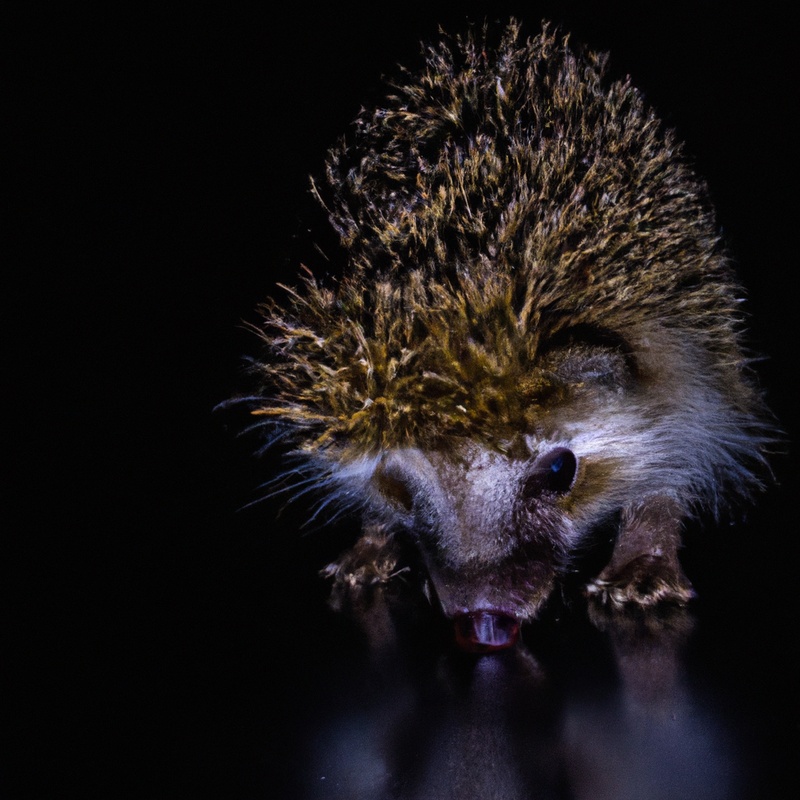
What do hedgehogs eat?
Hedgehogs have a varied diet that mainly consists of insects. They particularly enjoy eating beetles, caterpillars, slugs, and worms.
Hedgehogs are also known to eat small vertebrates like frogs and mice.
Additionally, they will consume fruits, berries, and even bird eggs if available. However, their primary food source is insects, as they are insectivorous creatures.
The role of aphids in the hedgehog’s diet
Aphids play a significant role in the hedgehog’s diet. These small, sap-sucking insects are a valuable food source for hedgehogs due to their high protein content.
Hedgehogs use their excellent sense of smell to locate and prey on aphids, which they devour with gusto.
Aphids not only provide essential nutrients for hedgehogs but also contribute to their overall health and well-being. So, if you spot aphids around your garden, know that you’re indirectly supporting the hedgehog population!
The impact of aphids on plants
Aphids can cause significant damage to plants, leading to stunted growth, wilting, and even death in severe cases.
Aphids as plant pests
Aphids are a common plant pest that can cause significant damage to crops and garden plants.
They feed on the sap of plants, depriving them of nutrients and weakening their overall health.
Aphids reproduce rapidly and can quickly infest plants, causing stunted growth, yellowing leaves, and the production of sticky honeydew.
These pests also attract other insects, like ants, which can further harm the plants.
Timely identification and control measures, such as introducing natural predators or using insecticidal soaps, are crucial for managing aphid infestations.
How do aphids damage plants?
Aphids damage plants by feeding on their sap, which weakens the plant and reduces its ability to grow and reproduce.
They insert their needle-like mouthparts into the plant tissue and suck out the sap, causing yellowing, wilting, and distortion of leaves.
Aphids also excrete a sticky substance called honeydew, which can attract mold and other pests.
Additionally, some aphids transmit viruses to plants, further compromising their health.
The economic impact of aphid infestations
Aphid infestations can have a significant economic impact on plants and agricultural systems. Here are some key points to consider:
- Crop damage: Aphids feed on the sap of plants, causing stunted growth, wilting, and deformation of leaves and buds. This can result in reduced yield and quality of crops, leading to financial losses for farmers.
- Decreased market value: If crops are heavily infested with aphids, they may not meet the market standards for quality and appearance. This can lead to lower prices and reduced demand for the produce.
- Increased management costs: Controlling aphid infestations often requires the use of pesticides or other management practices, which can add to the production costs for farmers. This additional expense can impact their profitability.
- Indirect effects: Aphids can also transmit plant diseases, such as viruses, which further contribute to crop losses. This can require additional investments in disease management strategies.
- Impact on ecosystem services: Aphids play a role in the ecosystem, but when their populations grow unchecked, they can disrupt the natural balance. This can impact the services provided by beneficial insects and other organisms that help control pests and maintain a healthy ecosystem.
Understanding the economic impact of aphids is crucial for developing effective strategies to manage and mitigate infestations. Farmers, researchers, and policymakers work together to find sustainable approaches to minimize the economic losses caused by aphid infestations.
Hedgehogs as natural aphid predators
Hedgehogs play a role as natural aphid predators in controlling aphid populations.
Hedgehogs’ feeding behavior towards aphids
Hedgehogs have a voracious appetite for insects, and aphids are no exception. These prickly creatures will happily munch on aphids, which are small plant-sucking pests.
Hedgehogs use their sharp teeth to crush and eat aphids, helping to keep their populations in check.
In fact, studies have shown that hedgehogs can significantly reduce aphid numbers in certain areas. So, if you have a garden plagued by aphids, attracting hedgehogs could be a natural and effective way to control these pests.
Just ensure that your garden provides a suitable habitat for hedgehogs, with plenty of food and shelter.
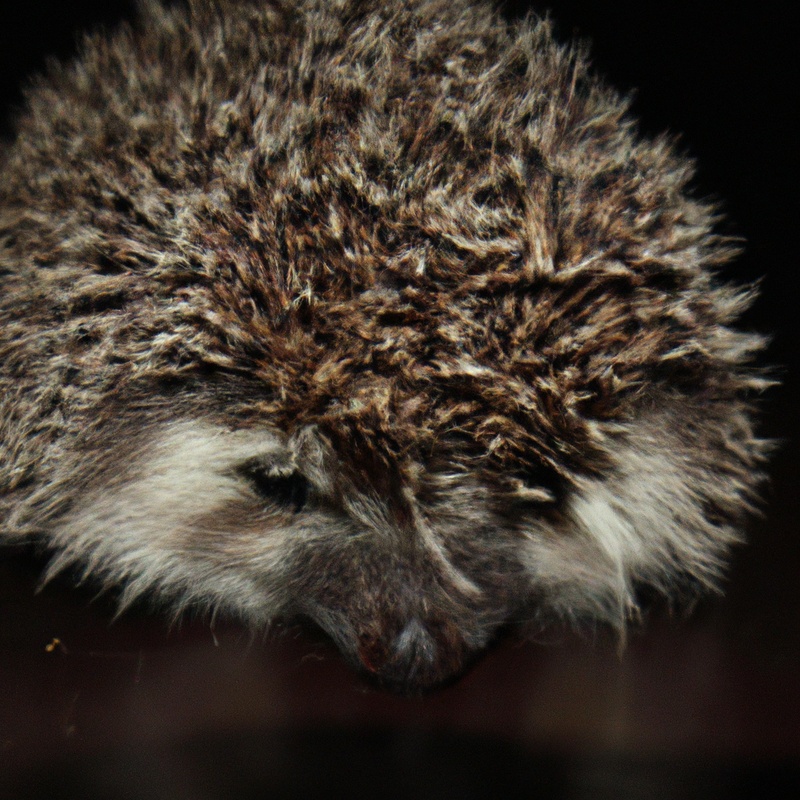
How hedgehogs help in controlling aphid populations
Hedgehogs help in controlling aphid populations by preying on them. Aphids are a common pest that can damage plants in gardens and crops.
Hedgehogs are natural predators of aphids and other small insects.
They feed on these pests, helping to keep their populations in check. Their diet consists of a variety of bugs, including aphids, which they consume as a source of food.
By eating aphids, hedgehogs play a role in reducing their numbers and minimizing the damage they can cause to plants.
The effectiveness of hedgehogs in aphid control
Hedgehogs are effective in controlling aphid populations.
They feed on aphids, which are major pests in gardens and crops.
Hedgehogs’ natural foraging behaviors help keep aphid numbers in check.
They roam at night, seeking out aphids and other insects as their primary food source.
By eating aphids, hedgehogs help prevent infestations and reduce damage to plants.
Hedgehogs’ appetite for aphids makes them valuable allies in natural pest control.
Other natural aphid predators
Ladybugs, lacewings, and hoverflies are other natural predators of aphids.
Ladybugs as aphid predators
Ladybugs are excellent aphid predators.
They feed on aphids and can consume a large number of them in a short period of time.
Ladybug larvae are especially voracious and can quickly decimate aphid populations.
One adult ladybug can eat up to 50 aphids per day! They are attracted to gardens that have a good supply of aphids, so planting flowering plants like daisies or marigolds can help attract ladybugs to your garden.
Ladybugs are a natural and effective way to control aphid populations without the use of harmful chemicals.
Lacewings as aphid predators
Lacewings are highly effective predators of aphids. These insects have voracious appetites and can consume a large number of aphids in a short period of time.
They target both adult aphids as well as their eggs and larvae.
Lacewings not only help control aphid populations, but also contribute to the overall balance of beneficial insects in the ecosystem. They are a natural and eco-friendly solution for aphid control in gardens and agricultural settings.
Hoverflies as aphid predators
Hoverflies play a significant role in controlling aphid populations.
These small insects are natural predators, feeding on aphids and their eggs.
Hoverfly larvae particularly have a voracious appetite for aphids, devouring them at an impressive rate.
As adults, hoverflies continue to consume aphids, helping to maintain a balance in the aphid population.
The presence of hoverflies in gardens and agricultural fields can be beneficial in reducing aphid infestations naturally.
How to attract hedgehogs to your garden
Create a hedgehog-friendly environment in your garden to attract these adorable creatures.
Providing a suitable habitat for hedgehogs
To provide a suitable habitat for hedgehogs in your garden, consider the following:
- Leave areas of your garden wild and untouched, with long grass and piles of dead leaves or branches for hedgehogs to nest and hibernate in.
- Avoid using chemicals or pesticides in your garden, as these can harm hedgehogs and their food sources.
- Provide a source of fresh water, such as a shallow dish or a small pond, for hedgehogs to drink from.
- Install a hedgehog house or sheltered area, like a log pile or compost heap, where they can seek refuge and raise their young.
- Ensure there are gaps in your garden fences or walls, allowing hedgehogs to freely roam between gardens in search of food.
- Create a diverse and natural garden with a variety of plants, shrubs, and flowers, providing food sources for insects and other small creatures that hedgehogs feed on.
By considering these factors, you can create a welcoming and safe environment for hedgehogs to thrive in your garden.
Hedgehog-friendly garden features
To make your garden hedgehog-friendly, here are some features to consider:
- Create shelter: Provide areas with dense vegetation, such as shrubs and piles of leaves or logs, where hedgehogs can find shelter and nest.
- Install a hedgehog house: Construct or purchase a hedgehog house, providing a safe place for them to hibernate and rear their young.
- Provide access: Ensure there are gaps or small holes in fences or walls, allowing hedgehogs to freely enter and exit your garden.
- Avoid harmful chemicals: Limit the use of pesticides and chemicals in your garden, as these can be toxic to hedgehogs and their food sources.
- Provide water: Place a shallow dish or pond where hedgehogs can drink and bathe, ensuring the water is easily accessible and not too deep for them.
Tips for encouraging hedgehogs to visit your garden
To encourage hedgehogs to visit your garden, here are a few tips:
- Provide shelter: Create a cozy spot by leaving piles of leaves, logs, or a hedgehog house in a quiet area.
- Food and water: Leave out a shallow dish of fresh water and provide hedgehog-friendly food like wet cat food or specialized hedgehog food.
- Avoid chemicals: Hedgehogs are sensitive to pesticides and slug pellets. Opt for natural alternatives to minimize harm.
- Create access points: Make sure there are gaps in fences or walls to allow hedgehogs to enter and exit your garden easily.
- Safety first: Remove hazards such as deep ponds or netting that hedgehogs can get tangled in.
Remember, hedgehogs are nocturnal creatures, so be patient and give them time to discover your garden.
Happy hedgehog spotting!
Frequently Asked Questions (FAQs)
Can hedgehogs eliminate aphid infestations entirely?
Hedgehogs can help control aphid populations, but they cannot eliminate infestations entirely.
Hedgehogs primarily eat insects, including aphids, as part of their diet.
While they can be effective in reducing aphid numbers in a specific area, their impact may be limited, especially in larger infestations.
It is important to implement a combination of integrated pest management strategies to effectively manage aphids, including natural predators like hedgehogs, along with other methods such as planting companion plants or using organic insecticides when necessary.
Are there any risks associated with attracting hedgehogs to gardens?
Attracting hedgehogs to your garden can have numerous benefits, but there are a few risks to consider. Here are some potential risks associated with attracting hedgehogs to gardens:
- Predators: Hedgehogs may attract predators such as foxes, cats, or birds of prey to your garden, which can be a concern for smaller pets or vulnerable wildlife.
- Disease transmission: Hedgehogs can carry diseases like ringworm or salmonella, which can be transmitted to other animals or humans. It’s important to practice good hygiene, such as washing your hands after handling hedgehogs or their habitat.
- Garden damage: Hedgehogs are known to dig holes in search of food, which can potentially damage lawns, flowerbeds, or vegetable patches. Consider protecting sensitive areas or providing alternative food sources to minimize this risk.
- Hedgehog dependence: If hedgehogs become reliant on your garden for food and shelter, they may struggle to adapt to other environments, impacting their long-term survival and ability to fend for themselves.
By being aware of these risks and taking appropriate precautions, you can minimize any potential issues and create a safe and welcoming habitat for hedgehogs in your garden.
Can hedgehogs be a solution for commercial crop protection?
Hedgehogs can indeed be a solution for commercial crop protection.
These adorable creatures have a voracious appetite for pests such as aphids, slugs, and snails, which can cause extensive damage to crops.
By keeping hedgehogs in or near agricultural areas, farmers can naturally control pest populations without relying heavily on pesticides.
Hedgehogs are eco-friendly and provide a sustainable approach to crop protection.
So, the next time you spot a hedgehog in your garden, remember that it’s not just cute, but also doing its part in protecting your crops.
Final Verdict
Hedgehogs play a crucial role in controlling aphid populations due to their natural insectivorous diet.
Aphids can cause significant damage to plants, leading to economic losses for farmers and gardeners.
Hedgehogs are efficient aphid predators, as they consume large quantities of these pests, helping to maintain a balanced ecosystem.
While hedgehogs are not a complete solution for aphid control, they are a valuable natural asset.
To attract hedgehogs to your garden, provide a suitable habitat and incorporate hedgehog-friendly features.
By encouraging these spikey allies, we can promote sustainable pest management and protect our plants.

